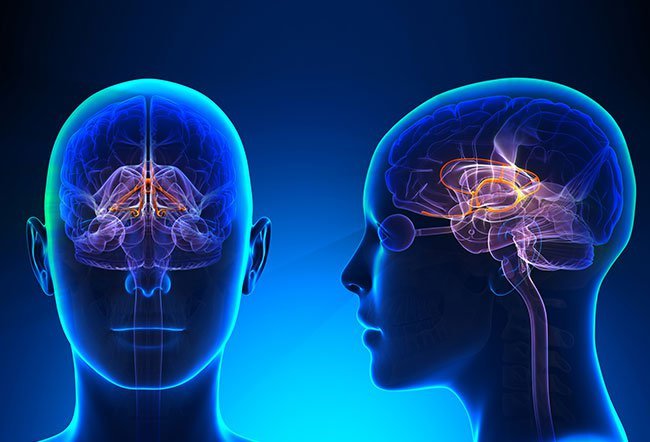The limbic system is responsible for controlling our emotions, along with other important bodily functions. When this system is not working properly, it can cause a variety of emotional and physical problems. The limbic system function is essential for our overall health and well-being.
Contents
What Is Limbic System?
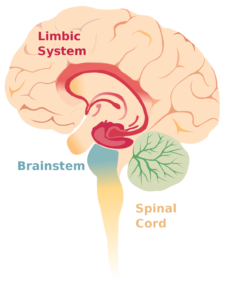 The limbic system is a complex network of brain structures that control our emotions, along with other bodily functions. This system is essential for our overall health and well-being, and when it is not working properly, it can cause a variety of problems. The limbic system includes the hippocampus, amygdala, thalamus, and hypothalamus. These structures work together to regulate our moods, memories, heart rate, breathing, hunger, and thirst.
The limbic system is a complex network of brain structures that control our emotions, along with other bodily functions. This system is essential for our overall health and well-being, and when it is not working properly, it can cause a variety of problems. The limbic system includes the hippocampus, amygdala, thalamus, and hypothalamus. These structures work together to regulate our moods, memories, heart rate, breathing, hunger, and thirst.
The hippocampus is responsible for creating new memories, while the amygdala controls our fear and aggression. The thalamus acts as a relay station for sensory information, and the hypothalamus regulates the body’s basic functions like metabolism and energy use. When any of these structures are not working properly, it can cause problems with our emotional health and physical well-being.
How Does The Limbic System Work?
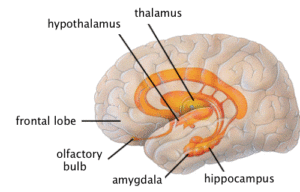
The limbic system is closely connected to other systems in the body, including the nervous and endocrine systems. The nervous system sends and receives signals between the brain and spinal cord, while the endocrine system regulates hormone production. The limbic system works with these systems to control our emotions and bodily functions.
When the limbic system is not working properly, it can cause problems with the nervous and endocrine systems. For example, problems with the hippocampus can lead to memory loss, while problems with the amygdala can cause fear and aggression. Problems with the thalamus can lead to sensory processing disorders, and problems with the hypothalamus can cause problems with metabolism and energy use.
Limbic System Function
The limbic system is a collection of brain structures that are important in emotion and memory. The limbic system includes the hippocampus, amygdala, and thalamus. These structures are important in learning and memory, emotional regulation, and motivation.
Examples are, the hippocampus is important in forming new memories, the amygdala is important in processing emotion, and the thalamus is important in relaying sensory information to other parts of the brain.
Learning & Memory
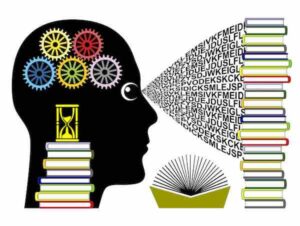 The limbic system is important in learning and memory. The hippocampus is important in forming new memories, while the amygdala is responsible for emotional memories. The thalamus helps to relay information between the different parts of the brain. It helps in-
The limbic system is important in learning and memory. The hippocampus is important in forming new memories, while the amygdala is responsible for emotional memories. The thalamus helps to relay information between the different parts of the brain. It helps in-
- Forming new memories
- Processing emotion
- Relaying sensory information.
Emotional Regulation
The limbic system is also important in emotional regulation. The amygdala is responsible for triggering the fight or flight response, while the hippocampus is important in moderating emotions. The thalamus helps to regulate moods.
For example, if you see a bear in the forest, the amygdala will send signals to the rest of the body to prepare for fight or flight. If you later remember that encounter, the memory will be associated with strong emotions. It helps in-
- Processing emotion
- Regulating emotions
- Relaying sensory information
Motivation
The limbic system is also responsible for motivation. The amygdala is responsible for motivating us to seek out rewards, while the hippocampus is important in motivating us to avoid risks. The thalamus helps to regulate our drive and motivation.
For example, the amygdala might motivate us to seek out a food reward, while the hippocampus might motivate us to avoid getting into a car accident. The thalamus helps to regulate our overall level of motivation. It helps in-
- Motivating us
- Regulating our drive
- Relaying sensory information.
Fight or Flight

The fight or flight response is a reaction that prepares the body for physical activity. The response is activated by the amygdala, which triggers the release of hormones like adrenaline and cortisol. These hormones help to prepare the body for action.
For example, when you see a bear in the forest, your amygdala will send signals to the rest of your body to prepare for fight or flight. This might include things like an increase in heart rate and a release of energy stores.
Overall, the limbic system plays an important role in emotion and memory. Damage to any part of the limbic system can lead to problems with memory, emotional regulation, and motivation. The limbic system is important for overall brain function.
Problems With Limbic System Function
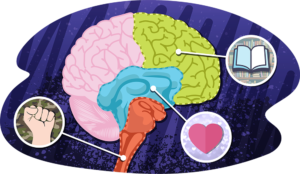
The limbic system is responsible for a variety of important brain functions, including emotion, memory, and motivation. However, if any part of the limbic system is damaged, it can lead to problems with these limbic system functions.
- For example, if the hippocampus is damaged, it can lead to problems with forming new memories.
- If the amygdala is damaged, it can lead to problems with processing emotion.
- If the thalamus is damaged, it can lead to problems with relaying sensory information.
- Damage to any part of the limbic system can also lead to problems with emotional regulation, motivation, and the fight or flight response. Overall, damage to the limbic system can lead to a number of different problems with brain function.
How to Ensure Limbic System Functions healthily?

There are a few things we can do to help keep the limbic system healthy and functioning properly. We can ensure the limbic system functions well by-
Eating Healthy
One way to help keep the limbic system healthy is to eat a healthy diet. The foods we eat can have a major impact on our brain health.
Another way to help keep the limbic system healthy is to exercise regularly. Exercise is not only good for our physical health, but it’s also good for our mental health.
Staying mentally Active
Another way to help keep the limbic system healthy is to stay mentally active. Engaging in mentally stimulating activities can help keep our brains healthy and functioning properly.
Yoga & Meditation
Another way to help keep the limbic system healthy is through yoga and meditation. These activities can help to calm and relax the mind.
Stay Active
This is very important for overall health. When you are active, you feel happier and healthier. It helps in keeping the limbic system healthy.
Staying Positive
Finally, one of the best ways to help keep the limbic system healthy is to stay positive. Negative emotions can take a toll on our mental health, and this can have an impact on the function of the limbic system.
Overall, there are a number of different ways we can help keep the limbic system healthy and functioning properly. By eating healthy, exercising, staying mentally active, and practicing yoga and meditation, we can ensure that our limbic system functions at its best.
Things Our Limbic System Is Responsible For

The limbic system is responsible for a variety of important functions, including:
- Emotion: The limbic system is responsible for creating and managing our emotions.
- Memory: The limbic system is responsible for creating and managing our memories. This includes both short-term and long-term memories.
- Motivation: The limbic system is responsible for motivating us to take action based on our emotions.
- Basic drives: The limbic system is responsible for controlling our basic drives, such as hunger, thirst, and sex drive.
- Behavior: The limbic system controls the behaviors we display based on our emotions and motivations.
These are just some of the things our limbic system is responsible for. It is a vitally important part of our brain that helps us to function on a daily basis. Thanks to the limbic system, we are able to experience emotions, remember memories, and behave in ways that reflect our emotions and motivations. The limbic system is essential for survival, and without it, we would be unable to function as humans.
So what does this mean for you? Well, first and foremost, it means that you should always treat your limbic system with respect. This is your brain’s emotional center, and it plays a vital role in your life. Secondly, it means that you should be aware of how your emotions and motivations affect your behavior. If you can understand how your limbic system works, you can work to control your behavior and make positive changes in your life.
Conclusion
The limbic system is the most primitive part of the brain. It regulates our emotions, memories, and drives. The limbic system is responsible for our feelings of pleasure and happiness, and it’s also responsible for our fear responses. The limbic system is constantly interacting with the rest of the brain to help us regulate our emotions and behaviors.
A Word From Therapy Mantra
Your mental health — Your psychological, emotional, and social well-being — has an impact on every aspect of your life. Positive mental health essentially allows you to effectively deal with life’s everyday challenges.
At Therapy Mantra, we have a team of therapists who provide affordable online therapy to assist you with issues such as depression, anxiety, stress, workplace Issues, addiction, relationship, OCD, LGBTQ, and PTSD. You can book a free therapy or download our free Android or iOS app.
